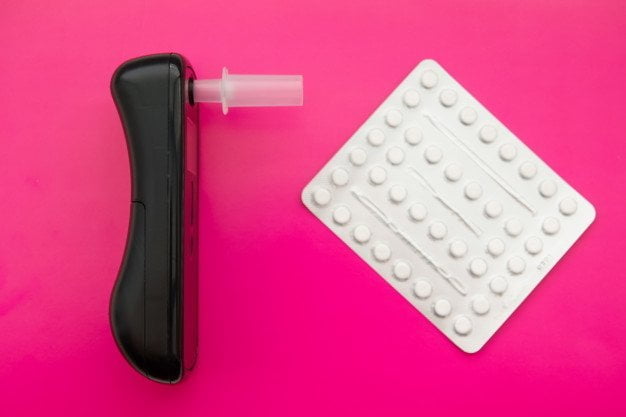Someone who is stopped by the police under suspicion of driving while intoxicated will be asked to submit to a breathalyzer test. This test is designed to determine if there is any alcohol in the person’s system and is used by officers to determine if an arrest is warranted. Though this is a common way to test someone’s blood-alcohol content (BAC) level along with the field sobriety test, there is a possibility the results will not be accurate.
Lawyers Have Options if a Breathalyzer Was Done:
Breathalyzers are intended to be a way to determine if someone is driving under the influence, but they are not infallible. In fact, there are quite a few situations that could lead to a false positive if someone is pulled over. If someone is arrested based on the breathalyzer results and charged with DUI, they can seek help from a lawyer to dispute those results. Even if it has been a few days since the arrest and a different type of blood-alcohol test will not help, lawyers have a lot they can look into. They may be able to help their client if they do find evidence the breathalyzer results may not be accurate.
Check for Equipment Proper Equipment Calibration:
Breathalyzers need to be properly calibrated to work properly, and certain guidelines must be followed to ensure the results are accurate. Most often, a technician will need to handle the calibration as they have the right training. If the breathalyzer has been used too many times without being calibrated by a technician, it is possible the readings are incorrect, and the breathalyzer results can be inaccurate. The amount of use between calibrations can be checked by examining the technician’s records.
Consider When the Test was Administered:
When someone does drink alcohol, a small amount is still in their mouth for a few minutes after the sip. If a breathalyzer is done during this time, it will have a reading over the legal limit, even if the person’s actual BAC is much lower. Burping or throwing up can also cause alcohol to be in the mouth, at least enough for the person to fail the test, so the officers must wait at least 15-20 minutes after any of these things occur before they can administer the breathalyzer test. If the officers did not wait the required amount of time, the results of the breathalyzer could be questioned for accuracy.
Check What Happened Before the Stop:
Residual alcohol can remain in the mouth after someone has a drink, burps, or throws up, but there are other instances where this can happen even if someone wasn’t drinking. Some breath sprays like the Listerine breath spray contain small amounts of alcohol. If this is taken shortly before the breathalyzer is done, the reading may be a false positive. This can also happen with some types of gum and some asthma inhalers. Lawyers will want to know every detail of what occurred before the stop because something as innocent as chewing gum could have led to the false positive.
Look into What Foods Were Consumed Before the Stop:
Many different foods contain alcohol, even if they do not have the impact an alcoholic drink would have. When wine is used for cooking, the alcohol should be gone by the time the food is done. However, trace amounts could be leftover. If someone has a piece stuck in their teeth when they do a breathalyzer, it’s possible for a false positive to occur. Additionally, some types of foods have a significant amount of alcohol in them, such as vanilla extract. While the alcohol should disappear during the cooking process, it is possible for someone to have a positive result after consuming products like vanilla extract, especially if they were tasting the cookie dough just before they had to run to the store.
Inquire About Medical Conditions:
Medical conditions like diabetes can cause higher-than-expected breathalyzer results because of the way the condition impacts the body. Breathalyzers cannot determine the type of alcohol in a person’s blood, so those with a high acetone level may have a false positive on the breathalyzer test. This can also happen to those who are on a low carb, high fat, and high protein diet, those who suffer from GERD, or those who have similar medical conditions.
What Happens if the Breathalyzer Was Wrong?
Since there are many different ways a breathalyzer can be wrong, lawyers will look carefully at everything that happened to their client before and during the arrest. If there is a possibility that the breathalyzer results were inaccurate, the lawyer can bring this information to the judge or the prosecution. As there is a possibility the results were wrong, it means the prosecution may not be able to prove their case beyond a reasonable doubt, and there is a chance the accused will receive a not-guilty verdict.
Many times, since it won’t be possible to obtain a not-guilty verdict, the prosecution will agree to dismiss the charges. This means the charges are dropped and accused will no longer be facing a DUI charge. They will be free to go home and will not have to worry about going through a trial or trying to fight the charges. It also means they don’t need to worry about a lengthy jail term, large fines, or having to have a suspended driver’s license for some time.
Breathalyzers are the standard way for an officer to determine if someone is driving under the influence and, when used in conjunction with a field sobriety test, can be a good way of determining intoxication. However, breathalyzers are not perfect, and there are plenty of times when the results will be inaccurate. If you’ve been arrested and charged with a DUI based on breathalyzer results, talk to an attorney about your case today. They may be able to determine a way to show that the test results were inaccurate and, therefore, may be able to prove you should not be facing a DUI charge.
Read Also:




























